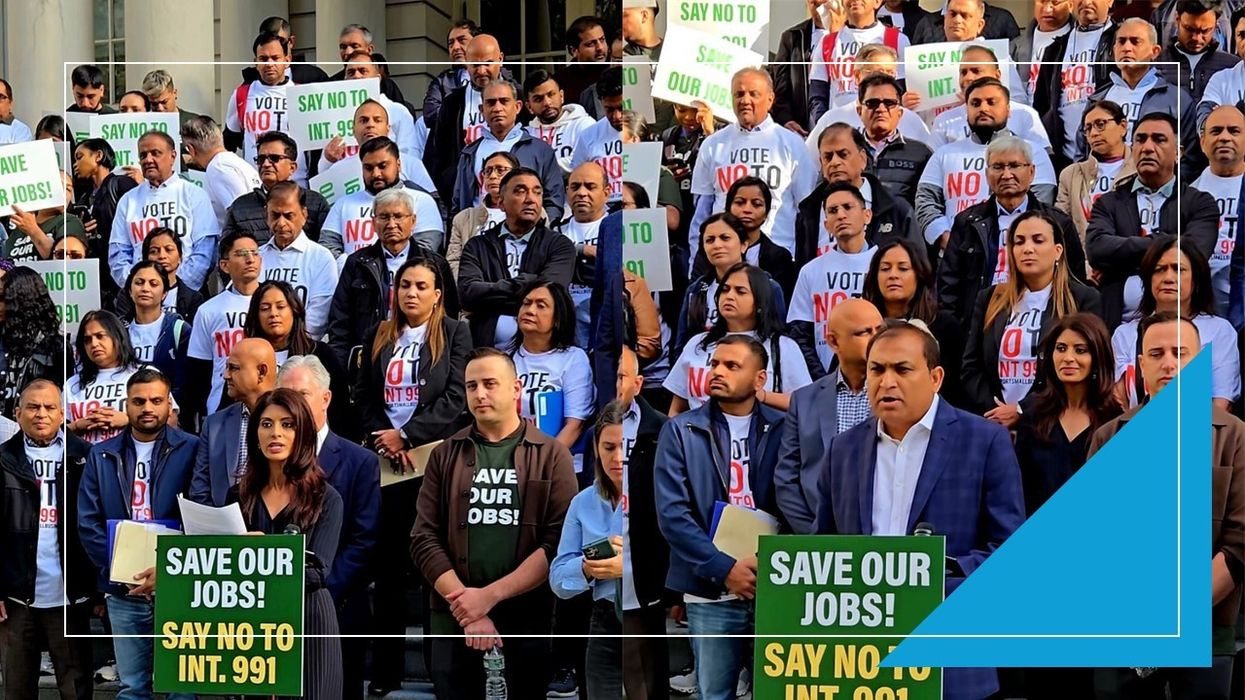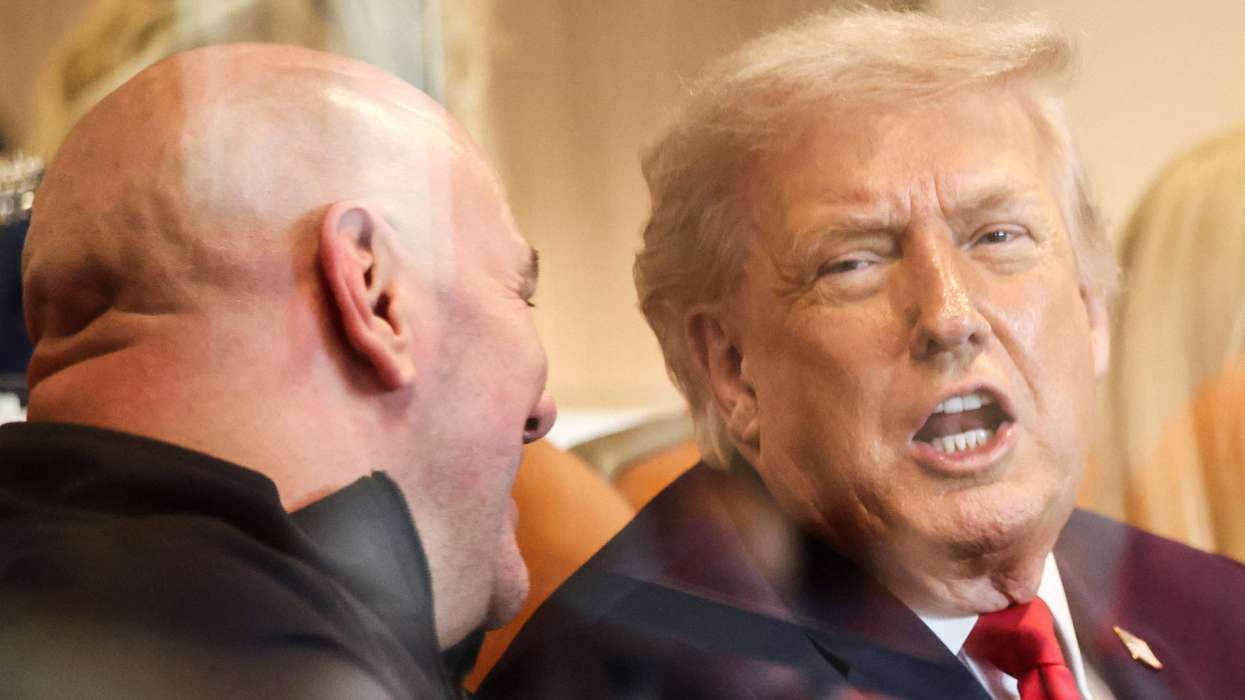HUNDREDS OF HOSPITALITY professionals gathered at City Hall to oppose Intro 991, the "Safe Hotels Act," highlighting its detrimental effects on NYC hotels, subcontractors, and small businesses. This follows last month’s protest, which drew more than 1,500 attendees.
Intro 991, despite being framed as a safety measure, imposes costly mandates that threaten the survival of the city’s hotels, risking over 265,000 jobs and billions in tax revenue, according to industry associations. Representatives from the American Hotel & Lodging Association and AAHOA were among the protesters.
“Intro 991 targets a single industry and will inflict sweeping harm on the hotel sector, the economy, and hotel guests,” said Kevin Carey, AHLA’s interim president and CEO. “The bill will have devastating, unintended consequences for New York City’s tourism and hospitality industries, forcing many hotels and small businesses to close. We urge the city council to reconsider and find real solutions that protect both safety and livelihoods.”
Since the legislation was introduced in July, AAHOA members have reached out to the council, urging them to reconsider the act. AAHOA Northeast regional director Preyas Patel, past chairwoman Jagruti Panwala, former young professional director Purvi Panwala and AAHOA member Mitesh Ahir addressed the council after the event.
“So proud of the strong leaders in our industry who spoke out against the union-backed Unite Here legislation that threatens to devastate NYC’s travel and tourism sector,” said Miraj Patel, AAHOA’s chairman. “If passed, this bill could force many hotel owners to shut their doors, crippling the local industry and eliminating thousands of jobs. We must protect the future of hospitality and the livelihoods it supports.”
Preyas Patel expressed disappointment that council members claiming to support small and minority businesses would back a bill that threatens minority-owned hotels, unable to afford union demands.
“When Intro 991 was first proposed, it was said to improve guest and worker safety,” Patel said. “I would like to see data showing complaints or crimes increasing only in non-union hotels, as AAHOA members haven’t experienced this. Why move forward if the data doesn’t exist? This bill appears aimed at boosting union presence, without addressing small, minority-owned hotel concerns.”
Patel urged the council to reconsider before advancing a bill that could destroy their businesses and harm the city’s economy.
“Our hotel owners and workers form a close-knit community vital to the city’s tourism and economy—not to mention a crucial resource for moderate-income tourists and New Yorkers with visiting family members,” he said.
Licensing changes harm small businesses
The bill would require hotels to obtain an additional operating license and prohibit subcontractors for core functions like housekeeping, front desk services, and security—restrictions that hoteliers believe would disproportionately harm small, minority-owned businesses.
“When considering subcontractors, we not only check their training and availability, we also provide them with property-specific training, just like direct-hire employees,” said Jagruti Panwala, a first-generation hotelier with hotels across the U.S., including one in the Bronx. “This is prudent to minimize liability and ensure guest satisfaction. Subcontractors are used in many industries—why remove them for hotels?”
Purvi Panwala, co-founder of a boutique hotel group with properties in Brooklyn, noted the challenge of maintaining a competitive workforce.
“To provide the best guest experience, we’ve relied on subcontractors,” she said.
Mitesh Ahir added that the act would impose more regulations, reducing flexibility in hotel management and driving up already-high room rates.
“Higher rates would lower occupancy and reduce revenue, which would hurt both our business and the city’s tax base,” Ahir said.
Impact on minority and small businesses
Panwala stressed that the bill disproportionately affects minority and small business owners, many of whom have invested their life savings into their hotels.
“We’ve built our businesses through hard work, and Intro 991 threatens to dismantle that progress,” she said. “The city council must consider the damage this bill will cause to New York’s diverse hotel community.”
“Small hotels like ours rely on lean operations to provide exceptional service,” said Oksana Rudenko, Hospitality’s director of operations. “This one-size-fits-all bill will push us out of business, with devastating effects on our employees and the local economy.”
Sarah Bratko, AHLA’s vice president of government affairs, emphasized that the industry takes the safety of employees and guests seriously.
“If there are issues, we want to be part of the solution,” she said. “In 2019, AHLA launched the ‘No Room for Trafficking’ initiative, with over 1.8 million training sessions completed by hotel employees. We also worked with prevention groups to pass a New York law mandating human trafficking training for hotel staff. While we thank Councilwoman Menin for meeting with us, this version of the bill will still devastate the lodging industry and small businesses in New York City.”
Hospitality industry associations, along with subcontractors, hotel owners, and small business advocates, urge the City Council to reconsider Intro 991. As the hotel industry recovers from the pandemic, the bill would add unnecessary strain, jeopardizing thousands of jobs and businesses critical to the city's economy and tourism sector, the statement said.
The Hotel Association of New York City recently dropped its opposition to the union-backed bill after securing changes, though its president, Vijay Dandapani, had previously called it a “nuclear bomb.” Some owners reportedly raised $20 million to lobby against it.






